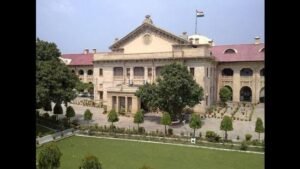
It happens far more to very successful people. When their careers are on the ascendant, people know everything about them — fame, money, lifestyle, talent, and personal life. But when their rising star begins to sink, they have to suffer the humiliation of painful anonymity. Politics, art, culture, business or a profession — this is, for human beings, a universal truth. But, perhaps, it is most evident in the world of films, where success is meteoric, overwhelming and heady; but equally, the descent can be precipitate, cruel and sudden.

In this context, the lives of two of the most iconic music composers of Bollywood come to mind: RD Burman (1939-94) and OP Nayyar (1926-2007). Burman, popularly known as Pancham, had immense talent and impeccable musical lineage. The son of the great composer, SD Burman, he received training also from the sarod genius Ustad Ali Akbar Khan and the tabla maestro Samta Prasad. From the 1960s to the late 1980s, he ruled the musical world of Mumbai cinema, composing music for a record 331 films, including the chartbuster, Sholay (1975). It was Teesri Manzil (1966) that catapulted him to the top, highlighting his ability to bring a new zing of creative experimentation and talent in the fairly predictable world of film music until then.
Film producers lined up to sign him up, including prominently, Nasir Hussain and Subhash Ghai. Lyricists wanted his music, and I know personally what great respect Gulzar and Pancham held for each other. In 1980, Pancham married Asha Bhosle, and together they created magic. But by the late 1980s, destiny began, as it must, to take a turn. Many films featuring his music flopped. Nasir Hussain, who had done every film after Teesri Manzil with RD, dropped him and chose the relatively unknown composer Anand-Milind for his superhit, From Qayamat to Qayamat Tak (1988). Subhash Ghai, too, preferred composers Laxmikant-Pyarelal for his new film. Ram Lakhaneven though he had promised it to Pancham, who now had the unfamiliar experience of being without work. In 1988, he gave hauntingly beautiful music to Gulzar’s lyrics for the film permissionbut Asha Bhosle the singer, and Gulzar, got the Filmfare awards, not Pancham. The same year Pancham suffered a massive heart attack. For the remarkable music of the film, 1942: A Love Storyhe got the Filmfare award, but posthumously.
OP Nayyar, who had no formal training in music, was a generation before Pancham, Bollywood’s highest-billed composer. In 1958, he got the Filmfare award for the film Naya DaurEarlier, a spree of musical hits in association with director-actor Guru Dutt created a sensation. Even today, who can resist the appeal of songs like Where did my heart go?in Mr and Mrs 55 (1955), or, Hey heart, it is difficult to live here, CID (1956), or the music of films like Tumsa nahin dekha (1957), Where did the heart lie again? (1964), Spring will come again (1965) and my dear (1965).
And then came the decline. In 1974, his long-term relationship with Asha Bhosle — who curiously played a key role in the life of both Pancham and OP — broke. The film offers petered out. The last song Asha sang for him was the poignant composition, You never chained us the genes did not giveShe got the Filmfare award for it but did not attend the function to receive it. OP accepted the award on her behalf but threw it out of the car on his way home.
Near penury stared at him. He had to move out in 1979 from his house in Churchgate, stay at a seedy hotel, move in with a little-known but talented chorus singer who had worked with him, Madhu Joglekar (with whom too he parted ways in 1996), and then become a paying guest with a family. Years of oblivion followed. He died of a heart attack in 2007. As per his wish, no one from his estranged family — his wife and four children — attended his cremation.
Fame and glory are ephemeral in life. Truly has Rahat Indori said: Those who are owners of the house today will not be there tomorrow/ Those who are tenants have few houses (Those enthroned today will by tomorrow be gone/ They are not owners, but tenants, on a short sojourn).
Pavan K Varma is an author, diplomat, and former member of Parliament (Rajya Sabha). The views expressed are personal





